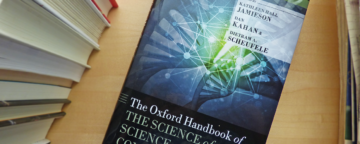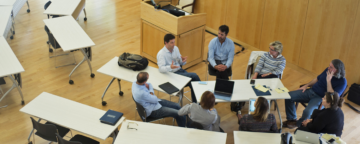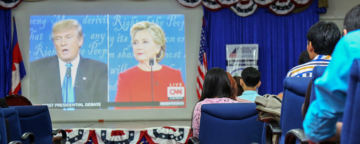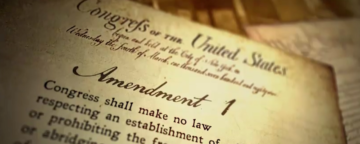This week Google launched a redesigned Google News, with "a renewed focus on facts," which will prominently feature fact-checking articles from FactCheck.org and other news sources.


This week Google launched a redesigned Google News, with "a renewed focus on facts," which will prominently feature fact-checking articles from FactCheck.org and other news sources.

Oxford has published The Handbook of the Science of Science Communication, the first in a series overseen by the Annenberg Public Policy Center's Science of Science Communication program.

APPC director Kathleen Hall Jamieson joins a panel gathered by the Paley Center for Media and the John F. Kennedy Library Foundation on "JFK at 100: Television and the Presidency."

In a new report, a group of leading scientists, academics and editors of scientific journals call for greater transparency and uniformity in the way author contributions are presented in science studies.

A study found that the Pope's encyclical on climate did not directly influence people’s beliefs about climate change but did so indirectly by raising the Pope's credibility on the issue.

Researchers from the Annenberg Public Policy Center will present their work this week and next at the 67th Annual Conference of the International Communication Association in San Diego.

An international contingent of scholars gathered for a two-day conference this week at APPC on the role of attitudes, for the forthcoming second edition of The Handbook of Attitudes.

A new study finds that pictorial warnings on cigarette packs can help to curb smoking levels at least 30 days after smokers had daily exposure to them.

What did viewers of the 2016 general election presidential debates learn about the candidates? A new APPC study analyzes debate learning and the effect of post-debate TV coverage.

The Annenberg Classroom documentary on the First Amendment, “Freedom of the Press: New York Times v. United States," has been honored in the Best Shorts Competition and others.